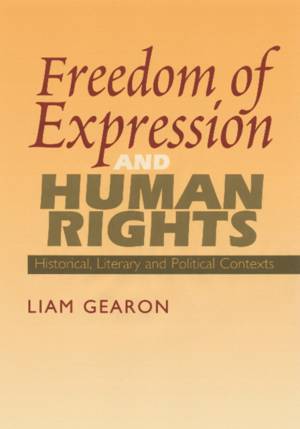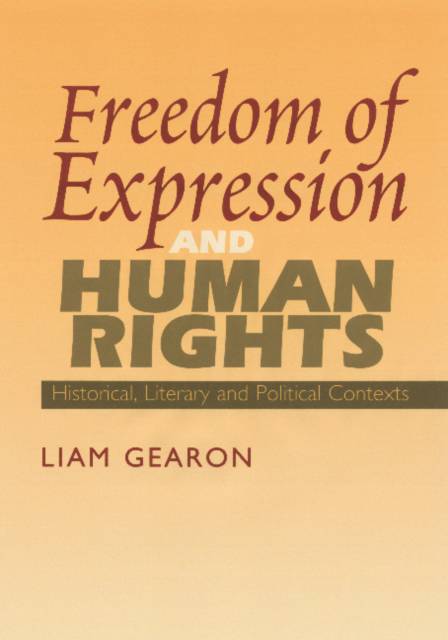
Je cadeautjes zeker op tijd in huis hebben voor de feestdagen? Kom langs in onze winkels en vind het perfecte geschenk!
- Afhalen na 1 uur in een winkel met voorraad
- Gratis thuislevering in België vanaf € 30
- Ruim aanbod met 7 miljoen producten
Je cadeautjes zeker op tijd in huis hebben voor de feestdagen? Kom langs in onze winkels en vind het perfecte geschenk!
- Afhalen na 1 uur in een winkel met voorraad
- Gratis thuislevering in België vanaf € 30
- Ruim aanbod met 7 miljoen producten
Zoeken
Freedom of Expression and Human Rights
Historical, Literary and Political Contexts
Liam Gearon
Paperback | Engels
€ 34,95
+ 69 punten
Omschrijving
Provides a critical and contentious overview of the fundamental relationship between writing and political dissent from early Greek democracy to post-Enlightenment forms of totalitarianism, such as Communism, Fascism and Nazism and through to modern forms of liberal democracy based upon universal human rights encapsulated by the UN's Universal Declaration of Human Rights. Complementing such historical contexts, this book explores the range of predominantly theological and religious, civil and political, social and cultural rationales for contemporary repression, contending that in the modern age at least freedom of expression issues are deeply affected not only by national law but that factors of a transnational (ideological or theological) nature. Finally -- through a review key inter-governmental and non-governmental (NGO) agencies -- the book examines current geo-political trends in the denial of freedom of expression, highlighting post-Cold War and post-September 11 shifts in political and religious repression, a movement in the locale of freedom of expression issues (especially towards electronic forms and Internet) and a heightening of global and transnational dimensions in freedom of expression. The book provides also a substantial series of appendices for scholars, researchers and activists interested in furthering investigation of issues in writing and human rights. A companion volume to "Human Rights & Religion", the book provides appendices for all those activists interested in furthering investigation of issues in writing and human rights.
Specificaties
Betrokkenen
- Auteur(s):
- Uitgeverij:
Inhoud
- Aantal bladzijden:
- 256
- Taal:
- Engels
Eigenschappen
- Productcode (EAN):
- 9781845190897
- Verschijningsdatum:
- 1/04/2006
- Uitvoering:
- Paperback
- Formaat:
- Trade paperback (VS)
- Afmetingen:
- 171 mm x 244 mm
- Gewicht:
- 458 g

Alleen bij Standaard Boekhandel
+ 69 punten op je klantenkaart van Standaard Boekhandel
Beoordelingen
We publiceren alleen reviews die voldoen aan de voorwaarden voor reviews. Bekijk onze voorwaarden voor reviews.









